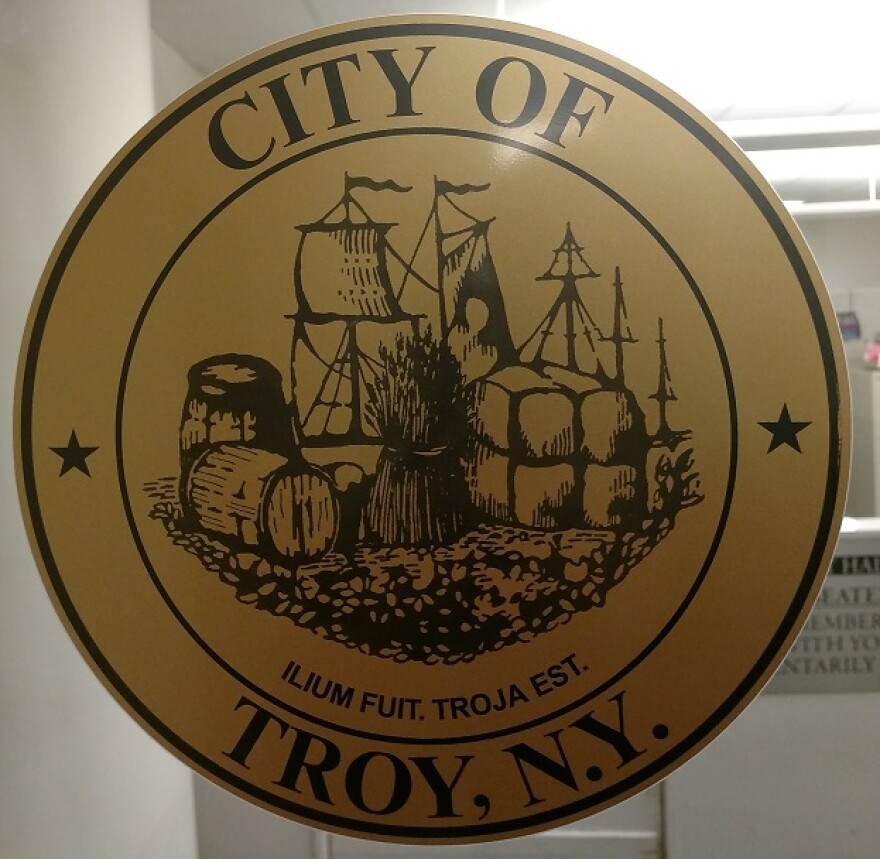Troy is taking new steps to get financial assistance out to city residents to replace lead water service lines on private property.
For the last several weeks, Troy residents and environmental advocates have been pressuring city officials to begin sending out more than a half-million dollars in state grant funding received five years ago to replace aging lead service lines.
Troy Mayor Patrick outlined his concerns about the undertaking in an interview WAMC. In part, the Democrat said, it might cost $20 million or more to address the issue citywide – far more than the $500,000 received. Madden added, if the city raised water rates to fund a replacement program affecting private residences, it could create a series of Constitutional conflicts.
Troy resident and New York Policy Advocate for environmental non-profit Earth Justice Liz Moran asked city councilors to pursue other sources of funding at Thursday’s meeting.
“Our position, along with our partners, is that rate funds should come as a last resort. The city should, first and foremost, seek state and federal grants, such as the Environmental Bond Act, the Clean Water Infrastructure Act, the Bipartisan Infrastructure Law, etc. to fund the lead service line replacement,” said Moran.
The council passed a series of ordinances meant to address legal concerns and to utilize state and federal dollars. Andy Piotrowski is city comptroller.
“The ordinances, again, it’s being set up in a manner to address the concerns with the Constitution, and then be able to track private vs. public side as easily as possible by creating all these accounts,” said Piotrowski.
New ordinances authorize the use of $1.6 million in American Rescue Plan Act funding and moving another $1 million in city funding toward lead line replacement – complementing the half-million already received from the state.
City corporation counsel Richard Morrissey said the distribution of state and federal grant funding to the private sector does not face the same restrictions as city revenues.
“ARPA funds is a specific authorized use, using it on the private side. And the other monies that came through the state, are also authorized. So they’re not restricted the way our own tax dollars are,” said Morrissey.
Another ordinance amends city Department of Public Utilities rules by allowing city employees access to private property for the purpose of replacing service lines.
But the DPU is still struggling to collect data on homes served by lead lines. Notices were sent out in recent weeks to residents requesting they report lead service lines. City residents are also being encouraged to request an inspection if they don’t know the status of their pipes.
Efforts by the city to ask residents to self-report have not been entirely successful in recent years.
As the city seeks to develop a more detailed map of affected properties, Public Utilities Superintendent Chris Wheland told the council more public input is needed.
“I think there’s just a disconnect between people not caring or maybe not knowing, and that’s where we’re trying to let them know. On the postcard that went out, there’s a phone number, there’s an email, there’s a QR code, there’s a website. I don’t know how else to make contact. If people aren’t going to fill it out, I don’t know what I can do to force them,” said Wheland.
The city hopes to begin water service line replacements in May.
Despite the delays to date, some councilors thanked the public for demanding action. Democrat Emily Menn represents the city’s 4th District.
“Thank you to all of our community members. We really would not be in this place in this moment without you bringing the awareness. Now we can continue to work together to get people down to report their lines and let’s try to keep being creative and in partnerships…thank you so much for all the hard work that’s gone into this at the community level,” said Menn.
With the city taking steps to distribute grant funding, Rensselaer County lawmakers from Troy are proposing legislation to call on the state to direct grant funds to address service line replacements.
The legislation says more than $1 billion in state Clean Water Infrastructure Act funding has not yet been allocated and could be used for lead service line replacement, and also encourages the state to seek new funding through the Bipartisan Infrastructure Law.





